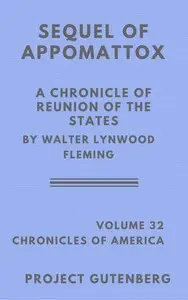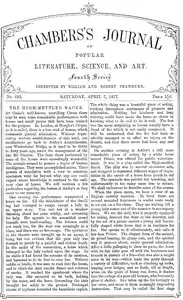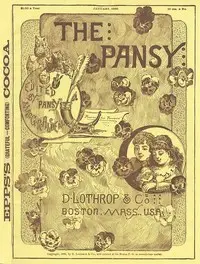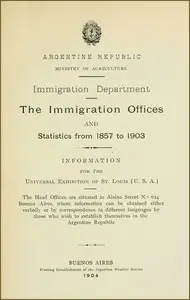"The Sequel of Appomattox: A Chronicle of the Reunion of the States" by Walter Lynwood Fleming is a historical account written during the early 20th century. The book explores the complex and tumultuous period following the American Civil War, specifically focusing on the challenges of reconstruction and the attempts to reunify the states after the conflict. The central themes revolve around the socio-economic upheaval, the struggle for civil rights among freed slaves, and the contentious political climate that emerged in the South. The opening of the work sets the scene immediately after the Civil War, highlighting the dire conditions faced by both Black and white populations in the South. Disbanded Confederate soldiers return to devastated lands, and the livelihoods of citizens are in ruins due to the war's destruction. Fleming illustrates the disorganization of society, the devastation of agriculture, and the poverty rampant among all classes, particularly emphasizing the hardships faced by those trying to navigate the transitioning environment and cope with the reality of emancipation. This portion of the text serves as a foundation for examining the subsequent efforts to rebuild and redefine American society in the Reconstruction era. (This is an automatically generated summary.)

The Sequel of Appomattox: A Chronicle of the Reunion of the States
By Walter L. (Walter Lynwood) Fleming
Chronicles of America series; v. 32
Genres
Released
2001-11-01
Formats
mobi
mobi (images)
epub
epub (images)
epub3 (images)
Free Download
Overview
About the Author
Walter Lynwood Fleming (1874–1932) was an American historian of the South and Reconstruction. He was a leader of the Dunning School of scholars in the early 20th century, who addressed Reconstruction era history using historiographical technique. He was a professor at Vanderbilt University from 1917 through his career, also serving as Dean of the School of Arts and Sciences, and Director of the Graduate School. A prolific writer, he published ten books and 166 articles and reviews. The son of a plantation owner who had slaves, Fleming was sympathetic to White supremacist arguments and Democratic Party positions of his era while critical of Republicans and Reconstruction.
Total Reviews
10.0k
Total reviews from Goodreads may change














